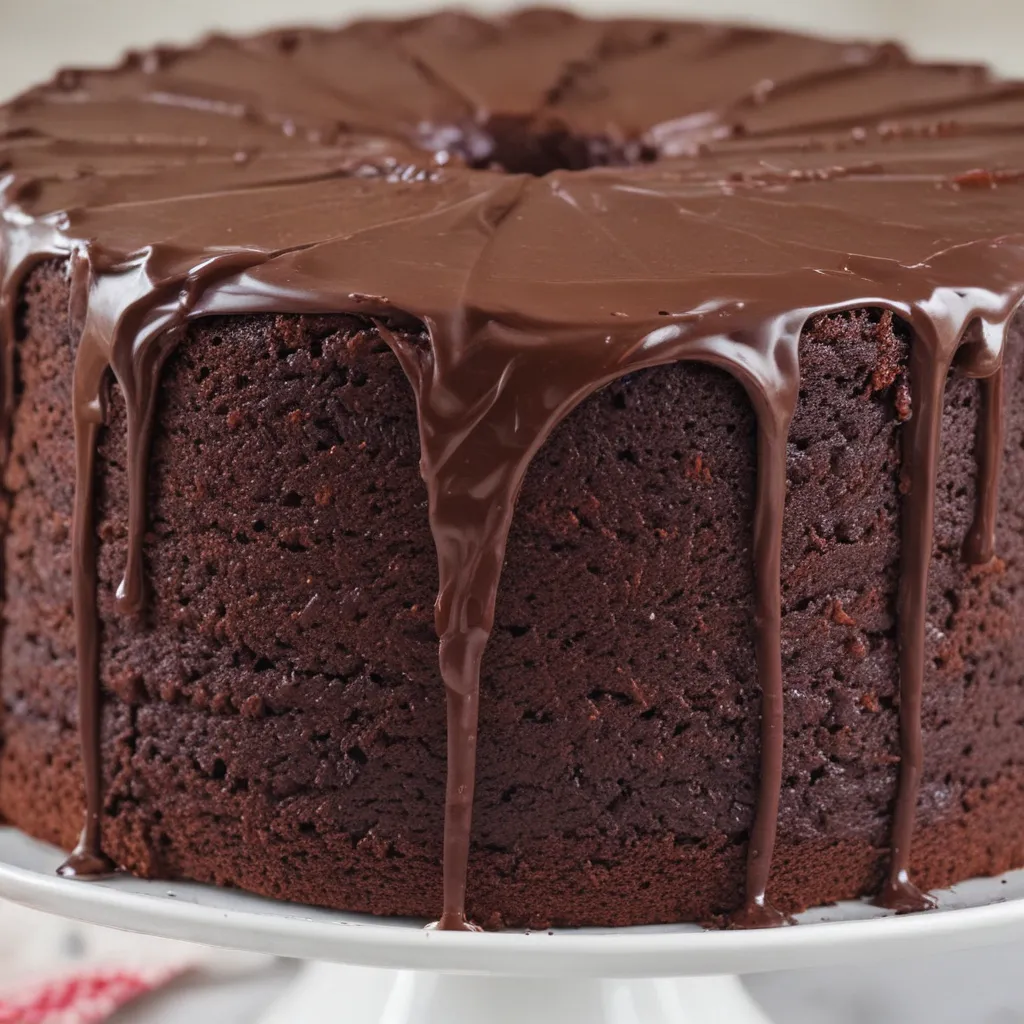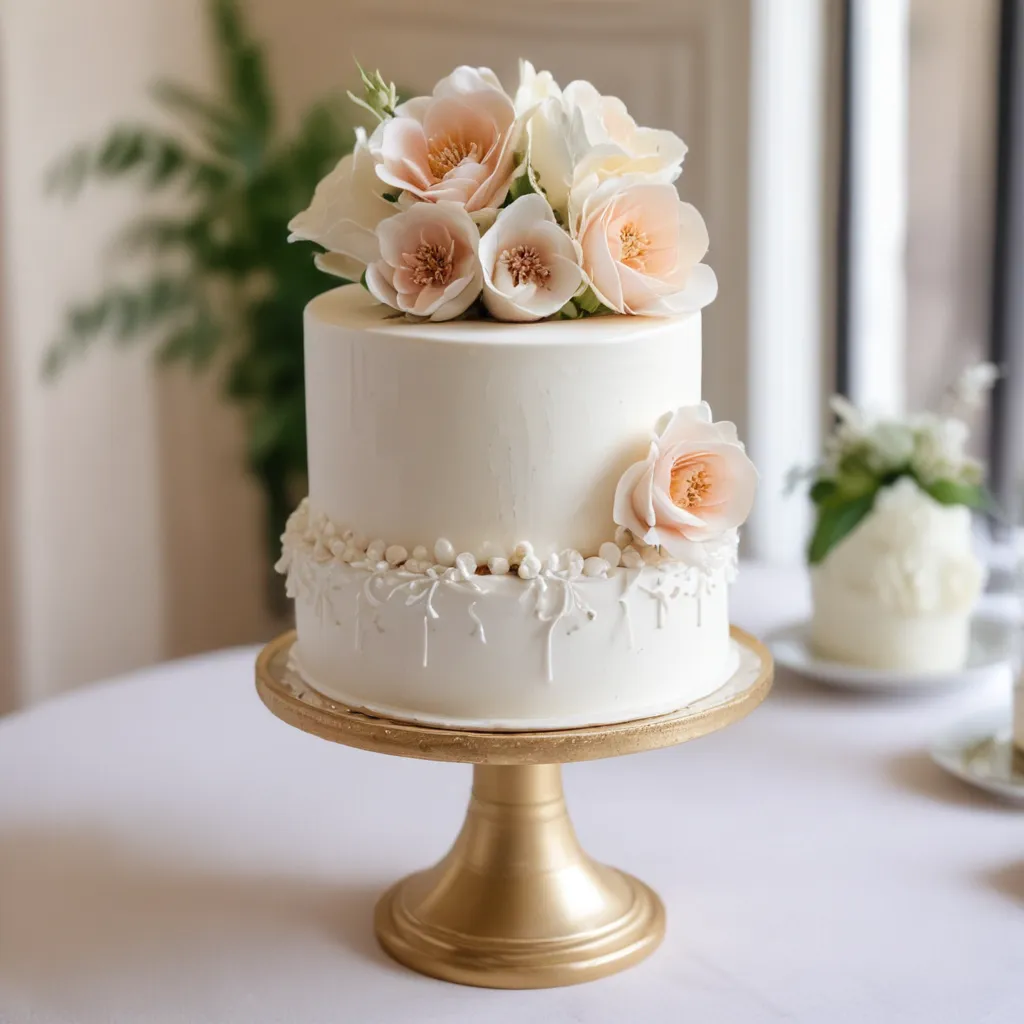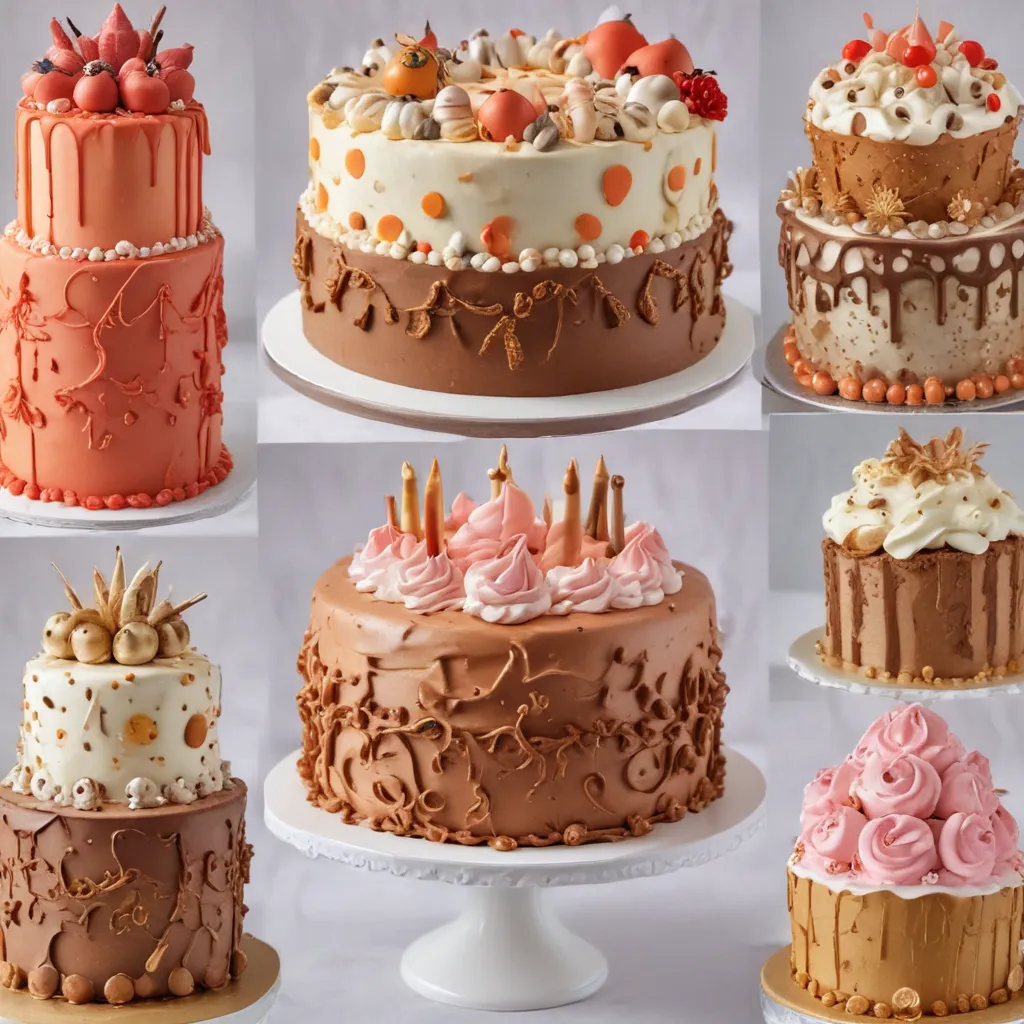Ah, the humble cake – is there anything more universally beloved than this delectable confection? From the towering tiers of a grand wedding cake to the humble slice of birthday cake, cakes have become an integral part of celebrations and gatherings the world over. But have you ever stopped to wonder about the rich cultural traditions that have shaped the cakes we know and love today?
The Roots of Cake: A Brief History
Let’s take a delicious journey through time, shall we? The origins of cake can be traced back to ancient civilizations, where flatbreads and simple dough-based confections were often served at special occasions. The Egyptians, for example, are believed to have baked some of the earliest proto-cakes, using honey to sweeten their offerings to the gods.
As cultures evolved, so too did their cake-making techniques and ingredients. The ancient Greeks, with their love of all things decadent, are credited with creating the first true cakes, complete with eggs, wheat flour, and honey. These early cakes were often shaped into rings or rounds, a shape that would endure for centuries to come.
Fast forward to the Middle Ages, and we see the rise of more elaborate cake-making traditions across Europe. The wealthy, with their access to rare and expensive ingredients, began to experiment with towering, multi-layered cakes adorned with intricate decorations. These “bride’s cakes” were a far cry from the simple flatbreads of old, and they quickly became a symbol of status and affluence.
Cakes Around the World: A Global Perspective
But the evolution of cake doesn’t stop there, my friends. As cultures collided and trade routes opened up, the humble cake began to take on new and fascinating forms around the world. Let’s explore a few of these global cake traditions, shall we?
Asia: Blending Flavors, Crafting Masterpieces
In Asia, the art of cake-making has long been a source of pride and creativity. Take, for instance, the beloved mooncakes of China, with their rich, dense fillings and intricate designs. These delicate pastries are a central part of the Mid-Autumn Festival, a celebration of the harvest moon and the changing of the seasons.
Venture to Japan, and you’ll be met with the delicate, almost ethereal cakes of the Land of the Rising Sun. From the feather-light sponge cakes of castella to the delicate, flower-adorned wagashi confections, Japanese bakers have elevated cake-making to a true art form. And let’s not forget the iconic matcha-infused green tea cakes, which blend traditional Japanese flavors with modern cake-making techniques.
Europe: Timeless Traditions and Regal Indulgences
Across the seas in Europe, cake-making has long been a source of cultural pride and culinary innovation. In France, for example, the macaron has become a true icon of Parisian elegance, with its delicate, meringue-based shells and creamy fillings. And who could forget the towering, ornately decorated cakes of the Russian imperial court, with their intricate filigree and gilded accents?
Travel further north, and you’ll discover the irresistible richness of German Schwarzwälder Kirschtorte, or Black Forest cake, with its layers of chocolate sponge, whipped cream, and cherries soaked in Kirsch. And in the United Kingdom, the iconic Victoria sponge cake, with its fluffy layers and classic strawberry jam and buttercream filling, has become a beloved national treasure.
The Americas: Blending Cultures, Baking Tradition
Crossing the Atlantic, we find a wealth of cake traditions that have been shaped by the melting pot of cultures that call the Americas home. In Mexico, for example, the beloved Día de los Muertos (Day of the Dead) celebration is marked by the creation of pan de muerto, a sweetly spiced bread that takes the shape of skulls and skeletons.
Venture further south, and you’ll discover the luscious, rum-soaked cakes of the Caribbean, like the beloved Caribbean Black Cake, which blends European and African culinary influences into a rich, dark confection. And in the United States, the diversity of cake traditions is truly staggering, from the towering, multilayered wedding cakes of the South to the delicate, cream-filled cupcakes of the Northeast.
Cakes as Cultural Expressions
But cakes are so much more than just delicious confections – they are also powerful expressions of cultural identity and tradition. For many communities around the world, the creation and sharing of cakes is a deeply meaningful ritual, imbued with symbolic significance and deeply rooted in the stories and values of a given culture.
Take, for example, the tradition of the Indian wedding cake, which often features intricate, hand-painted designs that reflect the vibrant patterns and motifs of traditional Indian textiles and architecture. These cakes are not just for show – they are tangible representations of the couple’s shared heritage and the joining of two families.
Or consider the role of cakes in religious celebrations, such as the Yule log cakes of Europe, which were once believed to have magical, protective powers. These cakes were often decorated with evergreen branches and berries, symbolizing the eternal cycle of life and the triumph of light over darkness.
Cake-Making as an Act of Love and Creativity
But perhaps the most powerful aspect of cake-making is the way it brings people together, fostering a sense of community and shared experience. After all, what could be more universal than the act of gathering around a beautifully crafted cake, whether it’s to celebrate a birthday, a wedding, or simply the joy of being alive?
For me, the process of baking a cake has always been an act of love and creativity. There’s something deeply satisfying about carefully measuring out the ingredients, mixing them together, and watching the batter transform into a towering, fragrant creation. And the true joy comes in seeing the delight on the faces of those who get to enjoy the fruits of my labor.
Embracing the Art of Cake-Making
So, as we explore the rich tapestry of global cake traditions, let’s take a moment to appreciate the artistry, the history, and the sheer deliciousness that cakes have to offer. Whether you’re whipping up a classic Victoria sponge or experimenting with the bold flavors of a Mexican Tres Leches cake, the act of cake-making is a truly universal language of joy and celebration.
And who knows – maybe your next cake creation will be the start of a new cultural tradition, a delicious way to bring people together and share the stories that make us all human. So, let’s get baking, my friends, and discover the endless possibilities that lie within the humble cake.
If you’re feeling inspired to explore the world of custom cakes, be sure to check out Jax Cake Shop in San Jose. With their talented team of bakers and designers, they can bring your wildest cake dreams to life, no matter the occasion or cultural tradition. So, what are you waiting for? Let’s dive into the delicious world of cakes, one slice at a time!





